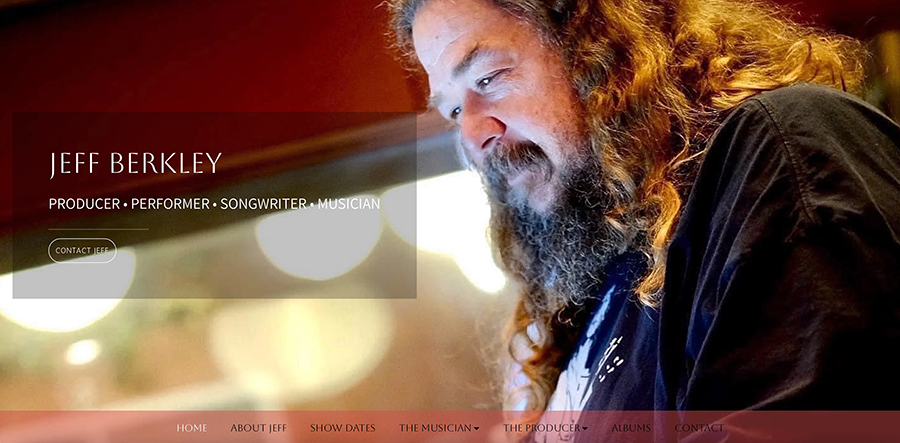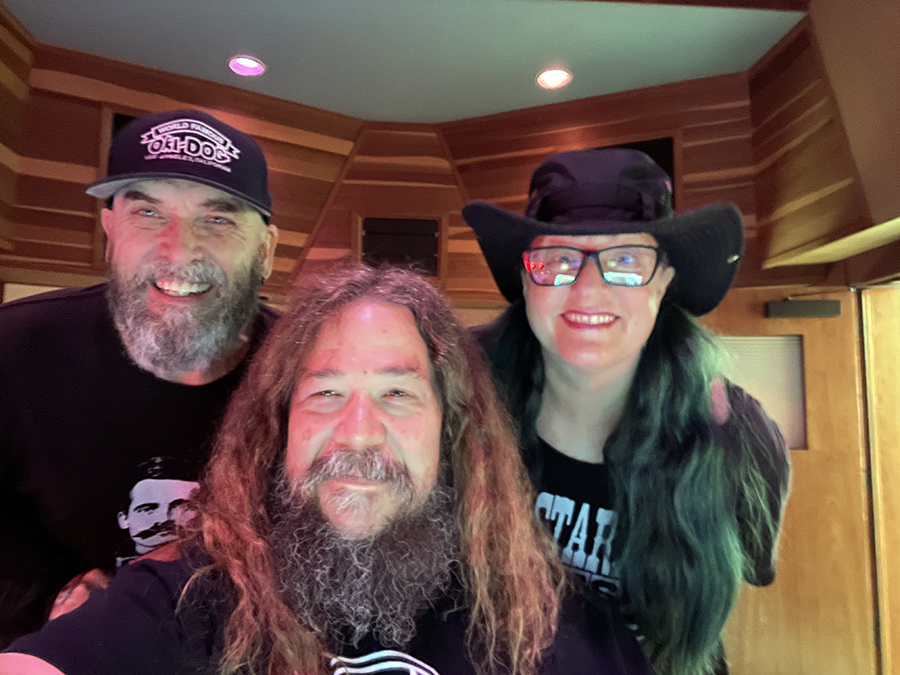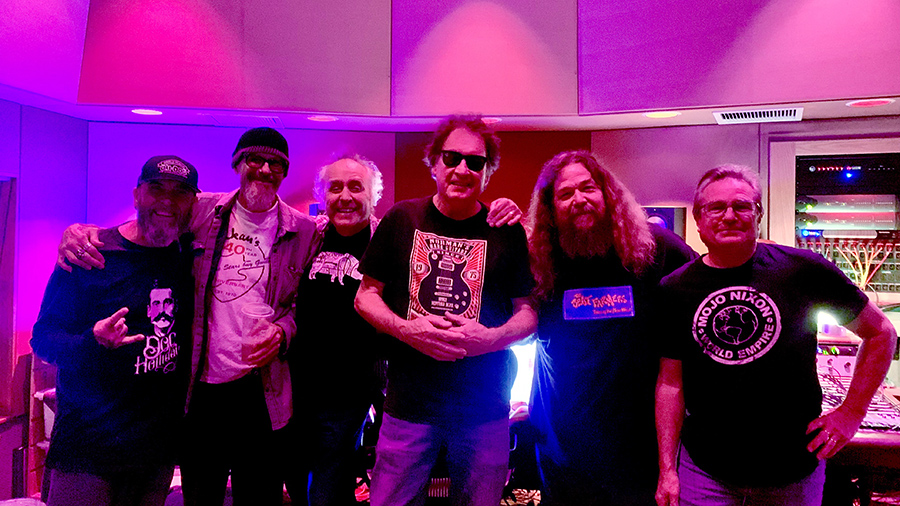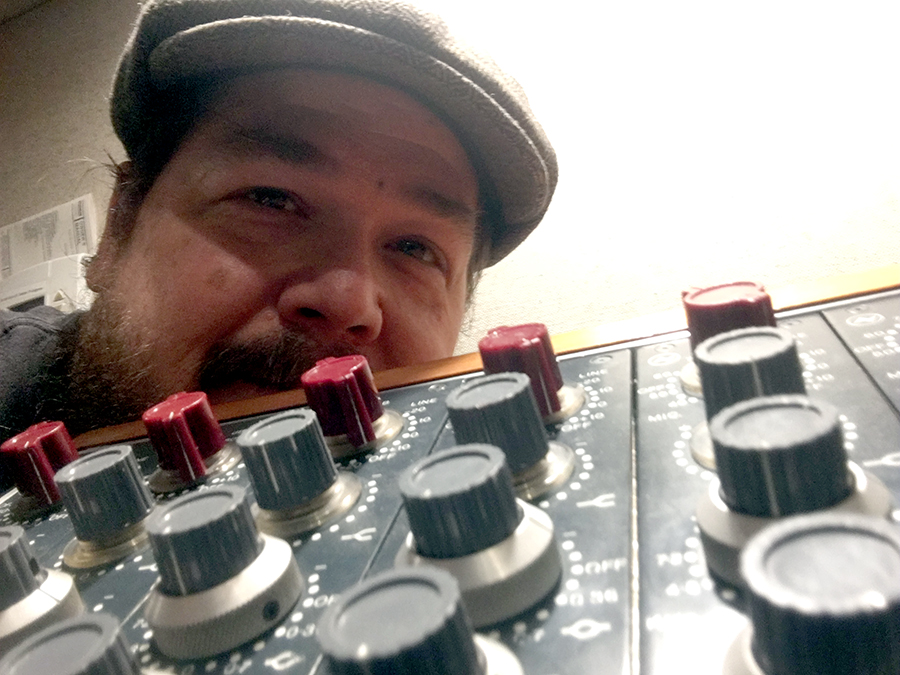Smoke Signals
Recording Matters, Part 2: Song Choice/Writing/Demoing/Choosing a Producer

Hi! My name is Jeff Berkley. I’m from San Diego, California. I am a musician, songwriter, engineer, and producer. I spend four or five days a week at Satellite Studio, here in San Diego, producing records. I’ve made lots and lots of them. I’m very lucky to be able to find magic in all sorts of different types of musical situations. All levels, styles, and vibes. Somehow, I can focus on what’s authentic and draw it out. I have no idea how I got here, but I sure did luck out!
This is part two of my attempt to articulate my own recording method to you. As I’ve said before, it’s just my method. It works for me. It seems to work for others as well. I figured there’s no better place to start then at the very beginning.
First, I’d like to talk a little about song choice.
There are so many great interpreters of songs. Everyone from Richie Havens to Barbra Streisand to any number of wonderful country singers like Patsy Cline, Emmylou Harris, and so on. Those folks can take the song of another writer and make it their own and breathe new life into it. Interpreting someone else’s song is one of the more difficult things to pull off in rock ‘n’ roll if you ask me.
If you fit this bill, the world is your oyster! There are literally millions of incredible songs out there that can be curated into a wonderful collection. One can tell a story of their own, based on the way they relate the songs one to the other. Handpicking a group of 10 to 15 songs is a really fun exercise that I suggest for everyone. Do a cover record! Even if you’re a songwriter! Good karma, right? I always try and include one cover on my records. I do it even though I write songs. It’s just good magic.
Anyway, back to choosing songs. Find songs that suit your style and say things that you would like to say as an artist and performer. You can really go down the rabbit hole with this one! You can create any kind of theme record or rock opera by just choosing different songs and playing with the way you deliver them or the way they sit in the song order or maybe choosing a song that is traditionally sung by a man if you’re a female. Those types of things can be very interesting and go a long way toward personalizing the cover choices. The idea is to choose songs that sound like yours when you sing them. Of course, you want to give songwriting credit, but in the moment, when the listener is experiencing the music, it’s important for them to not get hung up on any of that stuff. Nothing between them and you and the song. Nothing between your emotion inspiring their own.
Like I said, it’s a little different if you are a songwriter. For me, every song is so personal and it can be kind of a “Sophie‘s choice” to decide which ones get recorded and which ones don’t. In the end, once you’ve started to look at the group of songs that are candidates for recording, it’s pretty easy to start to notice which ones don’t go together.
That’s not to say that an eclectic album, full of all sorts of different styles, isn’t fun! Bands like Cake and the Shins jump between genres all the time. It can be quite effective! It’s fun to take people on a wild ride sometimes. If that’s the type of songwriter you are, then that’s the type of record you can make. I usually try to choose songs that complement each other and move from one to the next. None of that matters if you’re just putting out singles every few months. That’s becoming more of the “normal” these days. I love that as well. There’s lots of freedom in that.
Most of the time, I’m whittling down this conversation with clients to one statement. Put your best foot forward. Choose the best songs to make the best record.
The process is different for everybody. There are hundreds of different ways to write a song. Some people simply sing melodies with words and find someone to put music to that. Some people write on computers with digital audio workstations. Some people use guitars, some people use pianos, some people use oboes or fiddles or jaw harp. However you do it is the right way.

Berkley in the studio with Ron Houston & Cathryn Beeks.
Some people randomly write songs when they feel like it. Some get together with others and set aside specific times to write and be productive in that way. Others write in seasons. I think it was Gregory Page who first alerted me to this type of writing. The songs come in waves. I personally started out just writing songs randomly. Just whenever something struck me, or I came up with a cool thing on the guitar or whatever random thing inspired it. Nowadays, my life is a little different and I have certain times a year where time opens up. That seems to create some sort of open door to my inner songwriter. The songs just start coming because I have time to write them. I often wonder if I would write all the time if I weren’t doing other things, but I think having a finite amount of time to get things finished helps me. I am currently in a writing season.
Once the songs are written or chosen, it’s time to start the demoing and collaboration process. This is different for everyone. These days, the easiest way is to use the memo app on your smart phone. I call these memo demos. If you’re writing on the computer, demos are easy as well. You can use whatever DAW to create a demo.
Demo is short for demonstration. It’s just a record of where you are in the songwriting process. Sometimes you’re done and you don’t know it. Sometimes it’s not done when you think it is.
Memo demos are a great way to be able to share and collaborate with others. Having another set of ears and another brain on the song can very often take it to the next level. It can also cause confusion and self doubt, so be careful who you choose to listen to.
This is probably a good time to talk about choosing a producer. I personally love to be brought in to produce a record during this process. I love to collaborate, co-write, and be there from the very beginning.
On a side note, one can actually use the memo demos to help choose a producer. Send the MDs out to different folks and see what kind of feedback you get from different people. That’s a good litmus test. You should be able to tell who speaks your language and doesn’t right away. I’ll go more into depth of choosing a producer in next month’s installment.
But also, just come to me! Lol.

In the studio with the Beat Farmers.
Once you’ve got the rough draft of the song and you’ve been sending it around, it’s time to edit and make changes. It also helps to get out to open mics or start playing these songs at gigs. You’ll be able to really see which ones hit the audiences and which ones don’t. Remember, just because you played it doesn’t mean you can’t change it later. In fact, playing it live will help you figure out what’s working and what isn’t.
Now, I understand that playing it for other songwriters is terrifying. I promise, it can can be very helpful. I remember hearing Rodney Crowell tell a story about how he used to go by Guy Clark’s house to play new songs for him. Guy would make him recite the lyrics with no music. Guy would make Rodney look him in the eye while he recited the lyrics. Rodney said he would know immediately if the lines were good or believable. He’d know right away if he believed them himself because he was having to look Guy freaking Clark in the eye when he said them.
Now, I’m not saying you should do that. It’s a different time now. You’d probably get canceled for looking someone in the eye for that long.
Having others whom you trust to not be a dick, listen to your songs is really valuable. Whether it’s a producer or another songwriter or even a spouse who can listen and give you their opinion can be really helpful. Get outside your own head. Sometimes we write a line and assume people will understand it when that’s probably not gonna happen. It’s good to find that out before you record.
So, now you’ve got the candidates in a list to whittle down. Version one of your memo demos are recorded, even loosely. You’ve gone out and played them live and or shown them to other songwriters, poets, artists, and collaborators. Maybe you’ve even chosen a producer to start collaborating and writing with by now.
The next step is editing and demoing again.
This step is easy. You’re just going to employ the things you’ve learned from the last step. Take out lines, move stuff around, change lines completely, use line two of the second verse in line three of the first verse and move that line somewhere else, write bridges, change keys, rewrite or throw out songs that aren’t working at all. Figure out what’s making your song unclear and fix it.
At this point, you will need to create new memo demos that reflect your edits and rearrangements.
At that point, if they feel ready to you, it’s time start cutting them down to the group of songs that goes best together. The ones that feel, together, like one complete thought. Like the root system of a redwood forest. Above the ground, it’s a bunch of different trees that have their own unique look, but they all share roots underneath.
If they don’t quite feel ready to you yet, then rinse and repeat. In other words, go out and play the new versions, play them for other songwriters, and go through another editing process. I’ve seen folks spend a lot of time in this cycle and have it be very effective. Sometimes the songs come out all at once, completely. Those don’t need any help at all. That’s rare if you’re really trying to write good songs.
Once you’ve gone through all the cycles of writing and editing, it’s time to pare the songs down.
I mentioned earlier that this is a bit of a Sophie’s choice. Play the memo demos back to back in different orders. Try and think about what you want the record to be when it’s all grown up and finished. What’s your message, your point, your brand if that’s something you pay attention to. What are the types of gigs and managers and agents you’d like to go after. Do you know what your genre is? Maybe you don’t care? Maybe you have several genres. There are so many questions to ask when it comes to deciding which songs to choose.
One thing a lot of folks forget is to think about whether you’re doing vinyl or not. There are only about 17 minutes per side on vinyl so you have to choose your songs very wisely. Again, I think limitations are an artist’s friend. Having a really great—but also short and succinct—record is wonderful! Put your best foot forward.

It’s all about intention. For so many years my songs decided what the record was like. If you look back at my catalog, you’ll hear all sorts of different dives into different styles and it’s all a little bit unclear. That’s sort of by choice. It’s kind of been my intention from the beginning to not necessarily be pigeonholed or limited to a certain type of music. Of course, there’s no way around that. You always get known for some “thing.” It’s up to you to keep them guessing from there. Maybe you don’t want to keep them guessing. Maybe you want to be very clear and concise and have a “sound.” That can be achieved in all sorts of ways, but it definitely starts with the song choices for your record. Choose the songs that will achieve the intended goal.
Song choice and/or songwriting drives everything. There really can’t be discussion about production until the songs are finished and pretty close to arranged. That drives studio choice and musician choice and every other choice from that moment on. It will even drive the way your shows will go over the next year or two, as you move into your next writing season.
Recording really does matter, but only because songs and music matter so much to our cultures as well as our emotional, spiritual, and mental health.
Get out there and show up for the universe, folks! We need you! You can do it!










